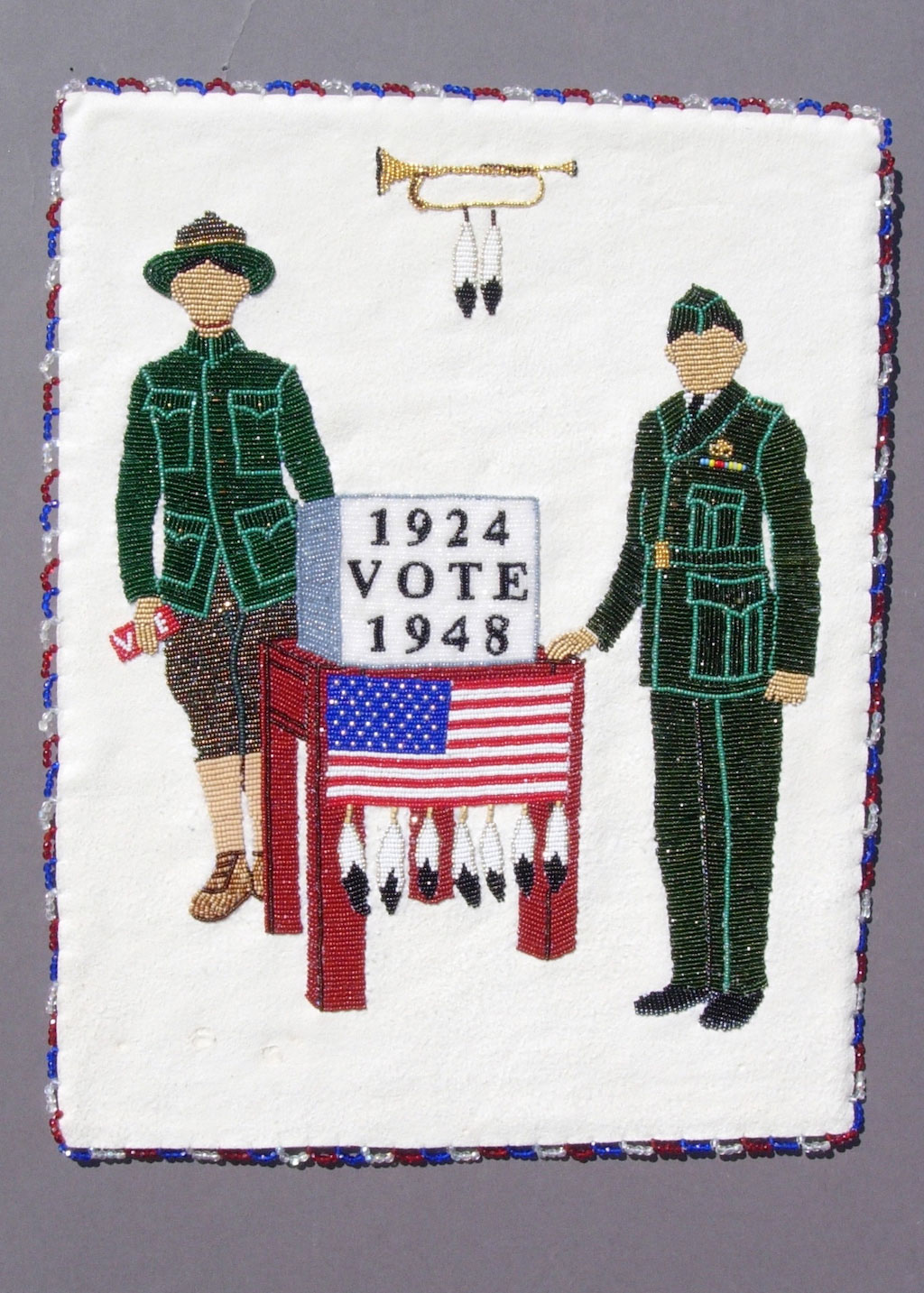Teri Greeves, Sovereign Citizen, 2008

Size 13 cut beads, Size 10 seed beads,glass beads,
brain-tanned deer hide, cotton cloth; 14″x11″
Artist Statement:
June 2, 1924: Indian Citizenship Act passed by Congress. Sovereign tribes across the United States are deemed citizens of the United States and are given limited voting rights. Indians considered “incompetent” and Indians living on untaxed reservations are not allowed to vote. Also, most Indians are not allowed to vote for federal or state officeholders.
1948: Harrison v. Laveen, 67 Ariz. 337, 196. P.2d 456 (1948). Arizona State Supreme Court ruling that distinguished between the guardianship of the mentally disabled and the guardianship of Native Americans. Prior to this decision, all Native people living in Arizona were considered mentally incapable and thus unqualified to vote.
Much has been made of the Code Talkers of World War II but the US government was employing Native speakers as early as World War I. Private Joseph Oklahombi, a Choctaw awarded the Silver Star was one of these WWI Code Talkers. His bravery and sacrifice, like the bravery and sacrifice of many other Native soldiers from many different tribes and many different parts of the U.S. paved the way for the Citizenship Act of 1924.
I believe the men and women who followed in Private Oklahombi’s footsteps, most famously the Arizona Pima Indian, Corporal Ira Hayes who was immortalized in the Joe Rosenthal photograph, set the stage for several state constitutional revisions that had previously disenfranchised Native citizens.
What makes the Arizona decision, Harrison v. Laveen most notable to me is that it brought down some of the last vestiges of the “mentally incompetent” arguments for Native disenfranchisement. By 1968, disenfranchisement was based on taxation rather than a sense of racial inferiority. Specifically, Native people living in the states of Idaho, Maine, Mississippi, New Mexico and Washington were not allowed to vote for state offices because they were not taxed. This was a full three years after the passage of the 1965 Voting Rights Act.
And yet, here we stand as Native people today in the historical year of 2008. We are sovereigns of our tribal nations and citizens of the United States. Our ancestors fought valiantly against the invading forces of England, France, Spain, and finally the expanding United States. Thus, symbolically floating above the heads of Native soldiers who represent Native American service in World War I and World War II and whose service made it impossible to defend Native voter disenfranchisement is a bugle, war medicine taken by Kiowa warriors in coup from the US Calvary during the Indian Wars. This medicine is still used today by the Kiowa warriors who have fought in the battles along the Rhine River, in Okinawa, on the Korean DMZ, in Hua Nghia Province in Viet Nam, and in Fallujah in Iraq.
Teri Greeves
Kiowa
2008